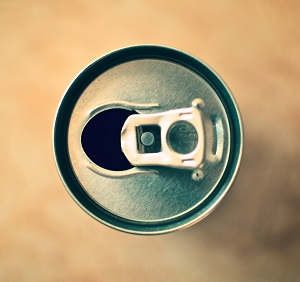Relapse
 Relapse occurs when a previous medical or mental health issue returns.
Relapse occurs when a previous medical or mental health issue returns.
What Is Relapse?
Relapse takes place when symptoms of a condition reappear. This happens after a time with no symptoms. For example, a person with depression might get relief from medication or therapy. But they may start showing symptoms again after a few months of treatment.
Relapse can refer to a return of any medical condition. Its most common use refers to the return of addiction symptoms. These return after a period of sobriety. A person recovering from alcohol addiction might begin drinking again after weeks, months, or years without using. Or a compulsive gambler might stop gambling only to start again.
What Causes Relapse?
Medical conditions may get better and then suddenly get worse. Some people stop medical treatment when symptoms go away. This can cause relapse. For people with addictions, relapse can be part of the addiction recovery process. Many people with addiction relapse several times before they reach permanent sobriety. Some addiction counselors argue that relapse enables recovery. It may do this by teaching an addicted person how to recognize potential relapse warning signs. This can help them improve with each attempt at sobriety.
Many emotional and physical indicators can act as relapse warning signs. These signal that a relapse may be imminent. Some situations people with addictions may relapse include:
For example, someone with alcohol addiction may have a history of drinking heavily at parties. They could be more likely to relapse after attending several parties.
Relapse has a strong chemical component. It can take weeks for an addictive substance to leave the body. The brain may be especially susceptible to the addictive substance even once it is gone. This is why most addiction counselors advise people with addiction to never use the substance again. Relapse typically means the addiction has come back. It can mean the person with addiction must complete the process of withdrawal and psychological distress again.
Relapse Prevention
A person with addiction may relapse. This does not mean they have failed. Relapse may occur many times before a person reaches recovery. Certain factors influence if and when relapse occurs. People may take steps to avoid relapse or minimize its effects. In addition to recognizing relapse warning signs, people may do the following to prevent relapse:
- Stay in treatment for the amount of time your care provider recommends
- Avoid addiction triggers, including people, places, and events
- Join an addiction recovery support group
- Build stress-management skills
- Practice relaxation techniques like yoga or meditation
- See a therapist for regular sessions
Group and one-on-one therapy may help prevent relapse. People with addiction can benefit from seeing a therapist who practices cognitive behavioral therapy (CBT). This type of therapy shows how thoughts and actions are linked. It may help people manage life stress that could lead to relapse.
References:
- Avoiding common triggers to relapse. (n.d.). American Addiction Centers. Retrieved from https://americanaddictioncenters.org/rehab-guide/relapse-prevention
- Foster, L. (n.d.). Understanding addiction relapse. EverydayHealth.com. Retrieved from http://www.everydayhealth.com/addiction/understanding-addiction-relapse.aspx
- Preventing a relapse. (n.d.). Drug-Rehabilitation.com. Retrieved from http://www.drug-rehabilitation.com/relapse_signs.htm
- Relapse warning signs. (2018, May 18). Retrieved from https://online.uwa.edu/infographics/relapse-warning-signs
Last Updated: 06-12-2018
Leave a Comment
By commenting you acknowledge acceptance of GoodTherapy.org's Terms and Conditions of Use.



